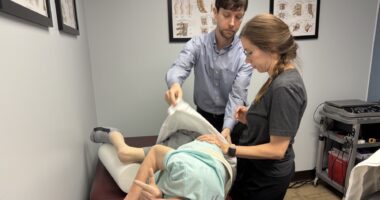CADTH: Spinraza Should Not Be Funded for Adults in Canada


In its final decision, the Canadian Agency for Drugs and Technologies in Health (CADTH) recommended against Spinraza (nusinersen) being reimbursed to treat adults with spinal muscular atrophy (SMA).
The decision was met with dismay by the SMA community and Biogen, Spinraza’s manufacturer.
“We are absolutely devastated for the SMA community and the adult patients who have been relentlessly advocating for years for their right to access potentially life-changing treatment,” Eric Tse, general manager of Biogen Canada, said in a company press release.
“The SMA community is in stunned disbelief and feels devastated that government agencies are not able to see the value in saving Canadian patients’ lives,” said Susi Vander Wyk, executive director of Cure SMA Canada.

Determined Life of Service Keeps Man With SMA Type 2 Going at 66
CADTH, an independent, nonprofit agency that advises policymakers in Canada about treatments and medical technologies, based its decision on the lack of clinical trials in SMA patients ages 18 and older.
Spinraza efficacy, safety data lacking for type 2 or 3 adults
“No randomized clinical trials evaluating the efficacy or safety of Spinraza in treatment-naïve adult patients with type II or type III SMA have been conducted,” CADTH wrote in its August report.
While this recommendation is final, decisions about whether or not to reimburse Spinraza for adults with SMA are ultimately up to individual healthcare systems of the country’s provinces and territories.
“While CADTH’s negative position reinforces access inequities across the country and keeps an urgently needed medication out of reach for the vast majority of adult patients, individual provinces are not bound by this recommendation and will ultimately decide whether to expand funding for SMA treatment,” Tse said.
Spinraza, the first disease-modifying treatment to be widely approved for SMA, was authorized for use in Canada in 2017. The therapy, which works to boost levels of the SMN protein whose defect causes SMA, is widely reimbursed for children with SMA across Canada.
In most of the country, however, Spinraza is only reimbursed for adults on a case-by-case basis, and patients commonly wait years before applications can be approved, Biogen reported. Currently, the only province where Spinraza is covered for all patients regardless of age is Quebec.
“We as a country cannot possibly accept healthcare based on age and postal code, where in one jurisdiction you are able to access treatment, while in another you can’t — it is the same disease and same life-saving treatment, no matter where an SMA patient lives, and their lives all have equal value,” Vander Wyk said.
Spinraza approvals were supported by data from clinical trials in children, but not in adults. Since the therapy was approved, however, there have been a number of reports on Spinraza’s use by adult patients who appear to benefit from the treatment.
In a draft proposal released earlier this year, a CADTH committee said that it was not possible to conclude that Spinraza could offer a meaningful benefit to adult patients based on currently available data.
This point was repeated in the final recommendation report, with CADTH noting that “available clinical studies were primarily non-comparative in nature and could not provide any conclusive evidence in support of a clinical benefit … nor was there any long-term data available in the target population of adults with SMA type II or III who have not received prior treatment.”
The agency also noted Spinraza’s cost to public health systems: “$708,000 in the first year of treatment and $354,000 in subsequent years,” calculated in Canadian dollars.
SMA doctors await ‘devastating conversations’
“We are disappointed with CADTH’s decision not to revise their recommendations; it is extremely challenging for patients not to have access to treatments in Canada when real world evidence shows a treatment can be beneficial,” said Stacey Lintern, CEO of Muscular Dystrophy Canada.
“Disappointingly, SMA doctors like myself will now need to provide support, guidance and explanation to our adult patients with SMA, on the rationale of denying persons based on age, for the drug treatment nusinersen,” added Colleen O’Connell, MD, a doctor of physical medicine and rehabilitation at Stan Cassidy Centre for Rehabilitation in New Brunswick.
“There has been so much hope among our patients and families, given this treatment benefiting those already receiving the medication; these will no doubt be distressing and potentially devastating conversations,” O’Connell said.
Xavier Rodrigue, MD, doctor of physical medicine and rehabilitation at Hôpital de l’Enfant-Jésus in Quebec City who has been treating patients with Spinraza for three years, called the CADTH recommendation “incomprehensible.”
“I can only express my disappointment and sadness,” Rodrigue said.
The post CADTH: Spinraza Should Not Be Funded for Adults in Canada appeared first on SMA News Today.

